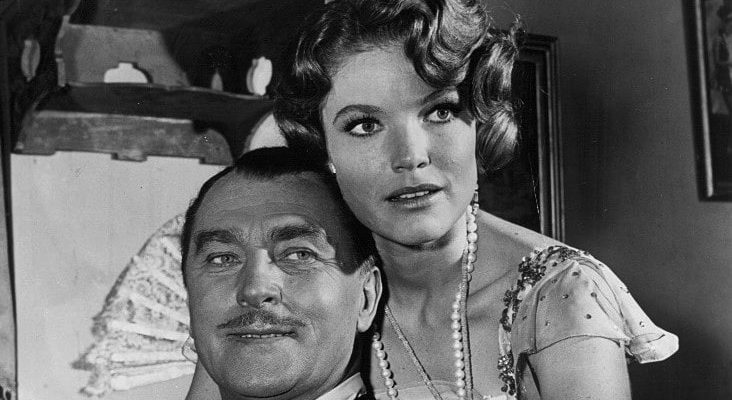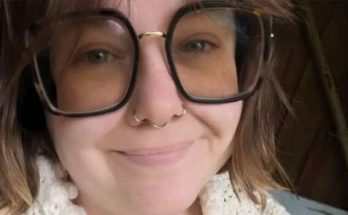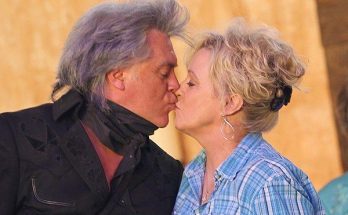Hollywood is losing one of the longest-lasting and ethical celebrities. A glowing redhead, Pippa Scott was a movie and TV actress whose career spanned the Golden Age of films and television and left an equally important mark on the history of human rights campaigns as well, as she died May 22 at the age of 90. According to her daughter, Miranda Tollman, she passed peacefully at her Santa Monica, California home because of congenital heart failure.

Even though people will surely recall the kind of class she injected into the movies such as The Searchers and Auntie Mame, in real life, Scott lived much bigger than the characters she embodied in cinema. She was not just another Hollywood royal born into the showbiz royal family but she was the woman whose life was defined with integrity, compassion and commitment to global justice..
Born as Philippa Scott on November 10, 1934, in Beverly Hills she was raised in an atmosphere of film making. Her father Allan Scott was a renowned screenwriter whose works included such classic musicals as Top Hat and Swing time, masterpieces of the epoch of Astaire-Rogers.

Laura Straub (her mother) was a successful stage actress. Even her uncle Adrian Scott, who had been a fine screenwriter and producer, was now one of the famous Hollywood Ten – blacklisted during the McCarthy anti-Communist witch hunts.
Pippa was affected by his persecution and it had an enormous mark on her, planted the seeds that eventually flowered into her adult years that her focus was civil rights and justice.
She was often mispronouncing her first name, Philippa, back when she was a child as Pippa and then the endearing mistake became permanent. The name stuck with her until she grew into a beautiful young

lady with a porcelain skin and flaming red hair, with the magnetic screen presence that would later to be noticed by not only the great directors, but also audiences.
She took her dramatic studies seriously and became a student of Radcliffe College then to the London Royal Academy of Dramatic Art (RADA). Her theatrical experience gave her the stable ground needed to rise above the rest of a town that was often quite shallow in its values. and more she had.

The acting career of her took off in 1956 when she featured as Lucy Edwards in The Searchers, which has gone on to be considered one of the finest Westerns in history.
The movie directed by John Ford and featured by the same John Wayne provided a tough debut of Scott to the elite circles of Hollywood. Her brief role was critical; she plays the niece whose kidnapping initiates the epic journey of the film; her performance was proclaimed widely as emotionally sincere.
The star of Scott was on the momentum as he bagged small parts in significant cinema. And in Auntie Mame (1958), she appeared as Gloria Upson, displaying her comedic chops next to Rosalind Russell in the florid and glamly titled title role.

She also played a young schoolteacher involved in a love affair with one of her pupils in However Young We Are (1958) a risky subject to deal with in the 50s, yet another show of her capacity to play emotionally challenging roles.
In My Six Loves (1963), she starred with Debbie Reynolds and David Janssen and in Cold Turkey (1971) she teamed up with Dick Van Dyke to provide a tear-tinged and bitterly humorous comment on the war against the smoking habit in small-town America.

Her Natalie the tired wife of a pastor in charge of the anti-smoking bandwagon, showed that she could play the everywoman, the person that can be identified with, vulnerable yet standing firmly in her shadow.
Less well-remembered though no less memorable parts she played include Bad Ronald, a 1974 television movie and Petulia (1968), an idiosyncratic movie by Richard Lester that stars Julie Christie and George C. Scott.

Sir, television was also a great contribution to her career in the 1960s and 70s. Scott appeared as a guest star on an immense amount of popular series shows Perry Mason, Dr. Kildare, Twilight Zone, Gunsmoke, The Waltons, Ironside,
Family Affair, The Mary Tyler Moore Show, The streets of San Francisco, Remington Steele, Mission: Impossible, and Barnaby Jones. She was highly versatile: you could always depend on her in all genres: drama, mystery, western, comedy.

She appeared in the episode Buddy Sorrell: Man and Boy in the 1966 season of The Dick Van Dyke Show, as Dorothy, the good wife of a rabbi who is seeing Buddy through his bar mitzvah, one of the highlights of the program both for warmth and for honesty. She was in many ways multi-dimensional, elegant, witty and emotional in nature, so was her characters on TV.
Yet possibly the most remarkable thing in her life was the second act of it.

Several years later, when the star of Hollywood had lost its shine on her, Pippa Scott became a global activist. Based on the political silencing that her uncle Adrian had to endure in the early days of her life
and spurred by a strong force of justice, she established the International Monitor institute (IMI) in 1993 that was a nonprofit organization focusing on gathering visual evidence of the war crimes and human rights abuse that was taking place around the globe.

The IMI became fundamental in the accumulation and development of evidence against international criminal tribunal prosecutions especially those concerning atrocities committed during the genocides in Rwanda, war in Bosnia and the violence in Sierra Leone and Cambodia.
Her team was collaborating closely with such organizations as the United Nations or the Human Rights Watch and their activities led to bringing to justice some of the worst criminals in the world.
In 1998, she made The WorldMost Wanted Man, a PBS Frontline documentary that traced the search of Radovan Karadzic, the Bosnian Serb leader who had been wanted of war crimes. The movie was critically acclaimed due to its fearless examination into the efforts of international law enforcement and humanization of genocide survivors.

She has also been involved in King Leopold,s Ghost, (2006) based on a haunting book by Adam Hochschild describing the atrocities of Belgian colonialism in the Congo. By her production company
Linden Productions, she vowed to draw the veil on the injustice that should not remain covered by western media only. It was not her work in the film here that was tried to acquire fame and fanfare but truth.
Her film making and activism later got an institutional home. These days International Monitor Institute archive is archived and becomes available to people at Human Rights Archive at Duke University.

She never wanted to be in the limelight as an older woman, but Scott came out of her retirement to appear in two smaller independent films Footprints (2009) and Automobile (2013) little epilogues to a wonderful filmcography.
Personally, she tied the knot in 1964 with television producer and co-founder of the Lorimar Productions Lee Rich. The couple had two daughters called Miranda and Jessica. Despite divorcing in 1983, the two enjoyed a new close friendship in the nineties and stayed devoted until Rich died in 2012.
Pippa Scott had a legacy of caring, creating, and being strong to her daughters and five grandchildren who are living on her legacy.

Back in 2005, she would discuss her life so honestly, with much grace, in an episode of PBS American Masters: You can not be in this business, in this world, without the burden to use your voice. Acting teaches one that- empathy. And empathy is call to action.”
That was Pippa Scott — a woman of great beauty, brilliant intellect and courage beyond belief. It did not matter whether she ruled in front of the camera or defended right behind the camera, her life eliminated the distance between art and activism.

Hollywood has gone without a classic but the world has gone without a wild and burning spirit.
Related



